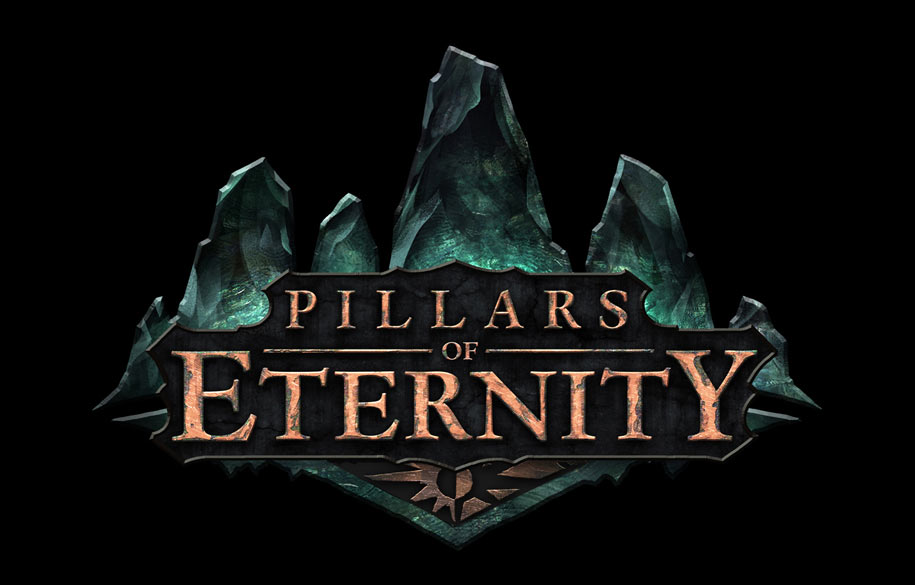
It wasn’t until about four hours in that I heard it first. The triggers for it aren’t the same as previous games, it’s more forgiving in that respect at least, but attempting to get out of an underground maze:
You must gather your party before venturing forth.
This is sixty hours of nostalgia trip, an old school CRPG ripped from last decade and presented at 1080p, from the zero-to-hero character arc to the micromanagement of fights to the little green circles on the ground, it’s the infinity engine reborn.
I’m a way in now, just having finished Act II, so while these aren’t thoughts on a completed game, I’m fairly sure they’re grounded, unless the rest of the game suddenly massively changes.

Combat is semi-turn-based, in the Final Fantasy style more than anything. Your character will do an action every N seconds, if you set what that should be, it does that, otherwise it’s an autoattack. There’s no AI, no script behaviors, if you want to cast a spell you need to do it yourself. Hit points are in two pools, endurance and health. Points come off endurance first, and then health later on, and endurance recharges between encounters, while health requires a Rest. This improves the D&D cycle of heavy fight, camp, while retaining danger. Zero health is maiming first, or straight to permadeath, depending on your difficulty settings.
They are difficulty settings, too. While there is the standard slider of easy to impossible, there are separate options for Iron Man delete-save permadeath, Expert Mode, how much you see in conversation trees (Do you want to know that there’s a [Perception 13] conversation route you didn’t quite make? Would your game be enhanced if you could see that taking this option will boost my reputation, while that one will decrease it?), the aforementioned maim-before-kill, and a few other options.
It’s not a game if you don’t like reading, either. While most of the characters – and all the party banter – are voiced, conversations with NPCs tend towards “key phrases” rather than full narration. The intro and explanatory set pieces get full voices, but the deeper routes – and roots – of the conversation tree are plain text. This makes sense, but does sometimes lead to voicework trailing off into silence before suddenly launching into a monologue several choices later. It’s an advancement on and an inspiration from the original games, but occasionally a disjointed one.

It’s a brand new universe, too, and one that Oblivion are really keen to give you a grounding in. The whole game is filled with books, exposition and characters willing to educate you at great lengths on metaphysic and history. There’s loads of identifiable NPCs who you can click on for a 500 word vignettes on their past lives. It’s all entirely optional, but still occasionally overwhelming. There’s also a weird lack of time in all of it, possibly to avoid aging the characters. The universe is interesting and has a few fascinating basises, but is ultimately a very familiar fantasy universe. They could have made it much better by, for example, just not having elves or dwarves at all, or at least calling them something else.
Your party is made up of characters, in both senses of the word. There are more companions than you can have in your party at once, eventually. Some of them are more interesting than others, some give good banter but aren’t very useful in combat. One very useful innovation is that at any inn you can pick up a random adventurer – whose skills you specify exactly like on chargen – to come along with you and fill in any gaps your party has.
The aesthetics are nice, I suppose. There’s a certain chunky quality of the character models that works oddly with the beautifully hand-painted backgrounds. It’s honestly lovely to have a game not built out of familiar tilesets. The sound is so much like Baldur’s Gate that it could be from the original soundtrack and I couldn’t tell, but I wish there were more variations on the battle music.
The tone is a bit bleak, and beyond party banter there’s not a lot of humour in it. To discuss this more, I’m going to have to get into the story a bit, so if you’re avoiding spoilers completely, you probably should just skip the bit between screenshots. I’m not going to talk about anything that actually happens after the first half hour, but I am going to talk about general themes and possible triggers.

The overarching theme of the game is The Soul, with a lot of science-vs-religion in there too. The big bad state-of-the-world problem is that babies are being born without souls at all, and this is being blamed on a) something big that happened a while ago and b) a class of magic-users who manipulate souls, and put souls into things, and such. There’s a lot of plot around ways they’ve tried to fix this problem – binding souls into bodies, putting animal souls in instead – but the main character’s Distinguishing Power is the ability to peer into the souls and past lives of people.
Because the main way this problem manifests is with soulless babies, there are major elements around killing babies, and a certain amount of dead-babies imagery in the game, and effect on mothers (and, indeed, fathers). It’s not roughly handled, as such, but it’s occasionally heavy. There are quite a few writers named in the credits, and while the lead writer and most of the “Additional Writing” credits are – from names – male (and I know that at least one of the “Additional Writing” credits wrote the scripts and character for two companions), the two overarching “Writer” credits are both female. It’s not balance, really, though I can’t tell from outside, but I’m both glad they didn’t dive directly into “the importance of motherhood” with a full white-male team, and kind of wishing there were more front-facing female voices in Oblivion. Certainly none of the main narratives in the kickstarter videos were. Anyway, I’ve strayed off my original point.


Generally, though, it’s great. Like, consume my day great. If you liked Infinity games – even if you didn’t love them, or found the mechanics overwhelming – I can highly recommend it. It’s a kickstarter project I’m happy to have backed, and the first Kickstarter game that’s been everything I ever expected of it.
In fact, I stick by the brief review I posted a few hours in:
Did you like Baldur’s Gate style games? Don’t buy this. This will suck sixty hours of your life, and do you have sixty spare hours to spend on computer games? I didn’t think so. Don’t get this game. Your loved ones and dependants will thank you. It’s awesome.
There are niggles. While it’s hard to end up with “Trap” builds, where your party is functionally useless, it’s far too easy to get in over your head. Mobs and areas aren’t levelled, so your first clue that everything’s about to go arse over teakettle is often when the shorts are already arcing over the samovar. In fact, in the process of writing this review I managed to take a one-way trip five levels down the megadungeon under your stronghold – two features I’ve not even mentioned in the 1300 words above – and had to restart from my last manual save after it put me nose to nose with a small dragon. My last manual save was about two hours prior to completing Act II. That has, however, given me a chance to complete some quests that I didn’t realise were suddenly going to resolve as failed when Act II ended. We’re back to Infinite Engine basics again: Autosaves are good, but manual save often.
It’s also got a few other narrative annoyances, like NPCs who are perfectly reasonable though a complicated dialogue tree until they suddenly attack, meaning if you fail the fight (see unlevelled monsters, above) you’ve got to go though the tree again. Trying the same conversation with “You could have taken this option if you were higher level in $foo” options on tends to reveal that there’s nothing you can do, this is a funnel to a large fight, and all your talking cannot convince them. Sometimes you can, but when you can’t it seems very… computer gamey.
It’s still an outstanding example of its type. The third Baldur’s Gate I didn’t even realise I was missing, fifteen years since the last one. This is the new bar that Torment, the next Shadowrun and even Beamdog/Overhaul’s forthcoming licenced Baldur’s Gate 3 are going to have to clear.
And now, I’m going to go play some more of it. See you later.







There’s a shiny download key waiting for me in the backers portal and and you’re _not_ helping me resist redeeming it and having the game eat all my time, dammit 🙂
Thanks for the post, it is making me look forward to playing it. The game does sound like it will actually be what I was hoping it would be(!)